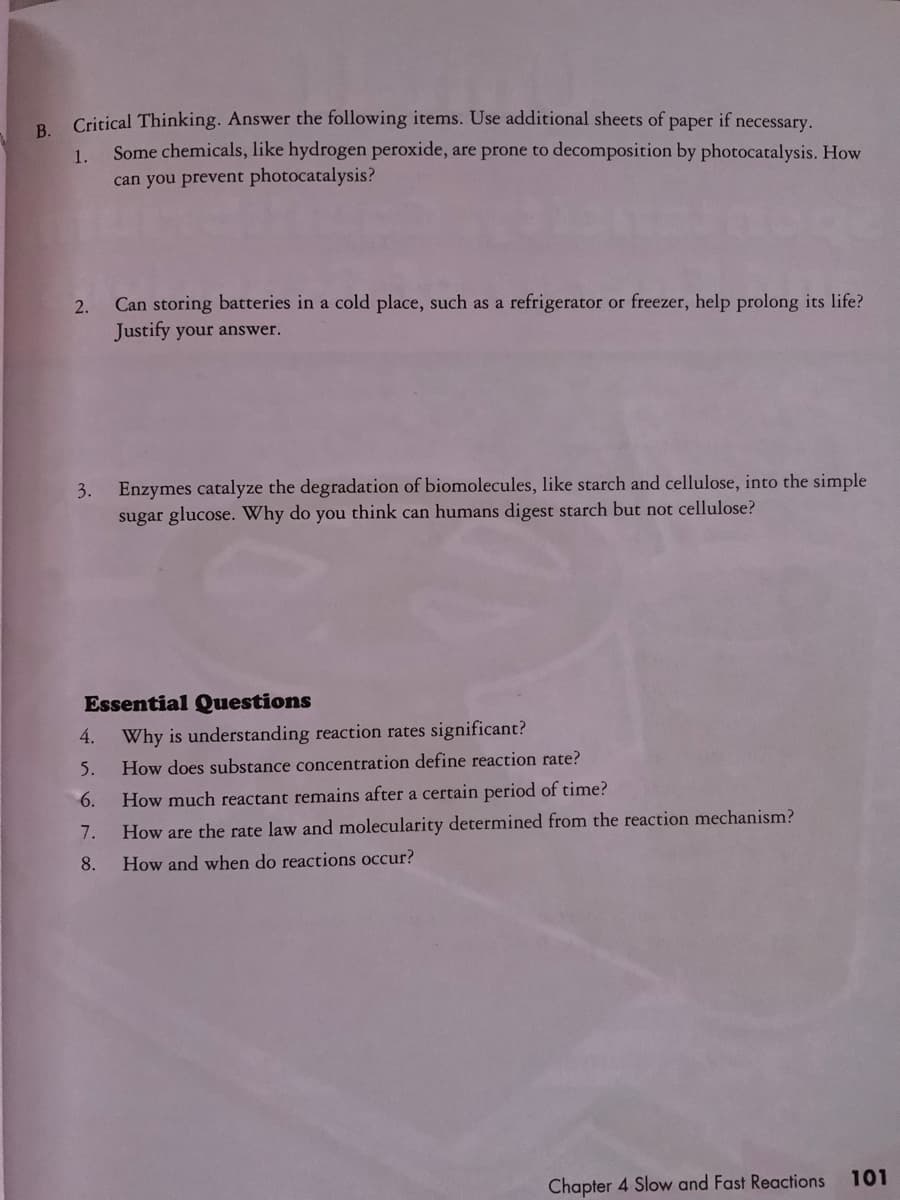Some chemicals, like hydrogen peroxide, are prone to decomposition by photocatalysis. How can you prevent photocatalysis? 1. Can storing batteries in a cold place, such as a refrigerator or freezer, help prolong its life? Justify your answer. 2.
Some chemicals, like hydrogen peroxide, are prone to decomposition by photocatalysis. How can you prevent photocatalysis? 1. Can storing batteries in a cold place, such as a refrigerator or freezer, help prolong its life? Justify your answer. 2.
Organic Chemistry: A Guided Inquiry
2nd Edition
ISBN:9780618974122
Author:Andrei Straumanis
Publisher:Andrei Straumanis
Chapter15: Radical Reactions
Section: Chapter Questions
Problem 17CTQ
Related questions
Question
Answer no.1 and 2 only (ESSAY)

Transcribed Image Text:Critical Thinking. Answer the following items. Use additional sheets of paper if necessary.
В.
Some chemicals, like hydrogen peroxide, are prone to decomposition by photocatalysis. How
can you prevent photocatalysis?
1.
2.
Can storing batteries in a cold place, such as a refrigerator or freezer, help prolong its life?
Justify your answer.
Enzymes catalyze the degradation of biomolecules, like starch and cellulose, into the simple
sugar glucose. Why do you think can humans digest starch but not cellulose?
3.
Essential Questions
4.
Why is understanding reaction rates significant?
5.
How does substance concentration define reaction rate?
6. How much reactant remains after a certain period of time?
7.
How are the rate law and molecularity determined from the reaction mechanism?
8.
How and when do reactions occur?
Chapter 4 Slow and Fast Reactions
101
Expert Solution
This question has been solved!
Explore an expertly crafted, step-by-step solution for a thorough understanding of key concepts.
Step by step
Solved in 2 steps with 2 images

Knowledge Booster
Learn more about
Need a deep-dive on the concept behind this application? Look no further. Learn more about this topic, chemistry and related others by exploring similar questions and additional content below.Recommended textbooks for you

Organic Chemistry: A Guided Inquiry
Chemistry
ISBN:
9780618974122
Author:
Andrei Straumanis
Publisher:
Cengage Learning

Organic Chemistry: A Guided Inquiry
Chemistry
ISBN:
9780618974122
Author:
Andrei Straumanis
Publisher:
Cengage Learning